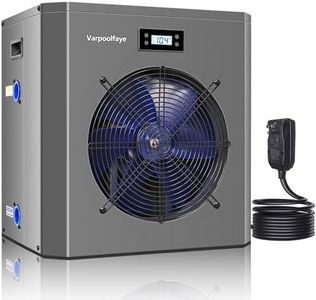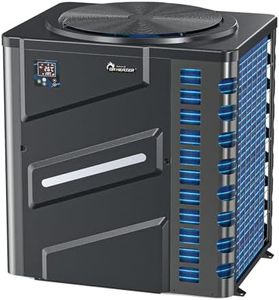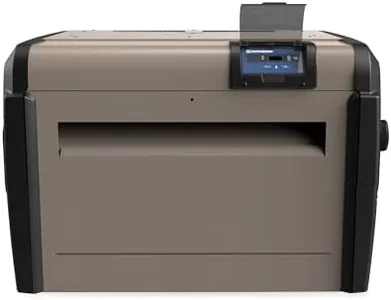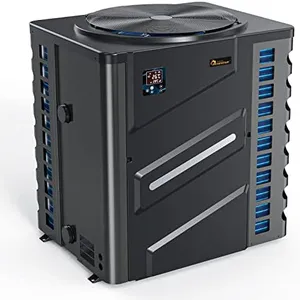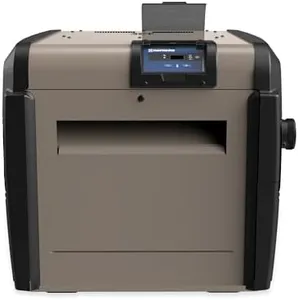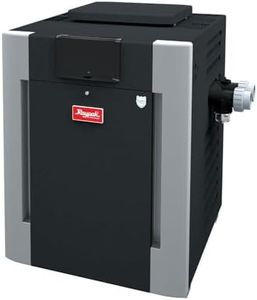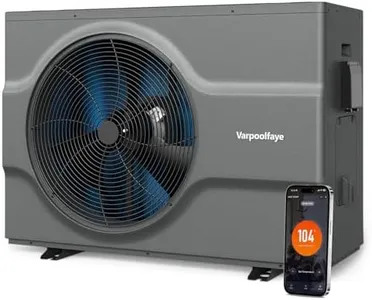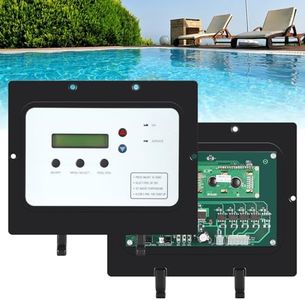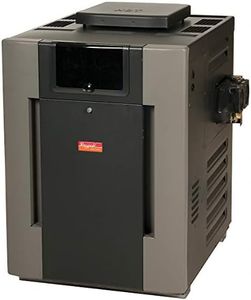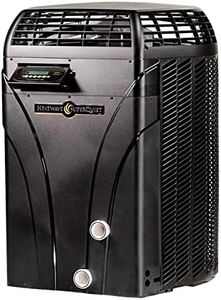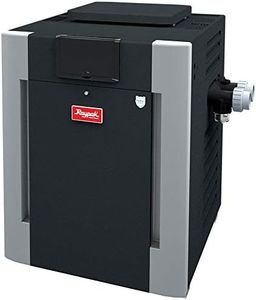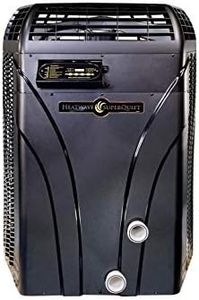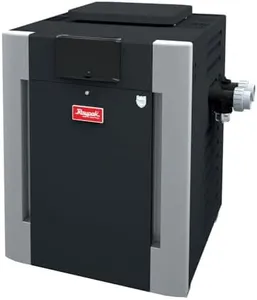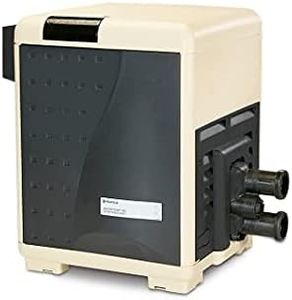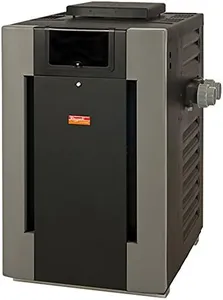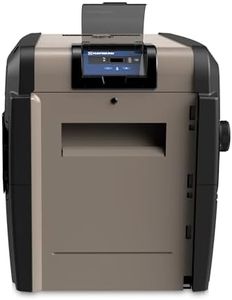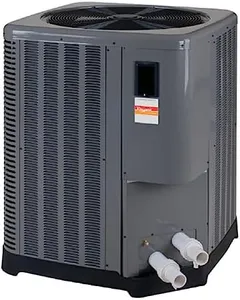10 Best Inground Pool Heaters 2026 in the United States
Our technology thoroughly searches through the online shopping world, reviewing hundreds of sites. We then process and analyze this information, updating in real-time to bring you the latest top-rated products. This way, you always get the best and most current options available.

Our Top Picks
Winner
DR. Infrared Heater DR-1400HP Full DC Inverter 140,000 BTU Heat Pump In-Ground and Above-Ground Swimming Pools, WiFi Smart Control via APP, Black
Most important from
70 reviews
The DR. INFRARED HEATER DR-1400HP is a powerful heat pump designed for both inground and above-ground pools up to 42,000 gallons. With a heating capacity of 140,000 BTUs, it efficiently warms large pools, making it a solid choice for steady heat without excessive electricity costs. Its Full DC Inverter technology adjusts the heat output smoothly between 20% and 100%, which helps save energy and reduces wear on the system. This results in quieter operation and less vibration compared to traditional heaters, which benefits users concerned about noise.
Energy efficiency is impressive, with the unit delivering about 6.85 kilowatts of heat from just 1 kW of electric input, making it cost-effective to run under suitable conditions. It is also built for durability with CSA and AHRI certifications, ensuring consistent performance over time. Another user-friendly feature is the built-in WiFi and mobile app control, allowing users to set schedules or adjust temperatures remotely, simplifying pool management.
The heater is quite heavy (315 pounds) and fairly large, so installation might require professional help and appropriate space near pool equipment. It is designed for climates where heat pumps work best—milder to moderately warm areas—as extreme cold can reduce efficiency. Although the initial cost and setup might be higher than simpler gas heaters, the energy savings and quiet operation can offset that expense over time. For large pools, this model provides a reliable, energy-efficient heater with smart controls and low noise, while users should consider installation needs, local climate suitability, and the fact that it runs on electricity.
Most important from
70 reviews
Hayward W3H400FDN Universal H-Series 400,000 BTU Natural Gas Pool and Spa Heater for In-Ground Pools and Spas
Most important from
571 reviews
The Hayward W3H400FDN is a strong choice for heating inground pools and spas, offering a powerful 400,000 BTU heating capacity that suits larger pool sizes or those in cooler climates. Its cupro-nickel heat exchanger stands out by resisting corrosion, which is a big plus if your pool water chemistry isn't always perfectly balanced. This means fewer worries about repairs from rust or buildup over time.
The heater also boasts an efficient hydraulic design that helps reduce the pump’s running time, potentially lowering your energy bills. For those concerned about environmental impact, it produces low NOx emissions, meeting strict air quality standards. Operation and maintenance are user-friendly thanks to the front-panel access and simple control pad, making it easier to manage without professional help.
This model is quite heavy and sizable, so installation might require effort and space considerations. While it excels in heating power, it may entail higher upfront and operating costs compared to smaller or less efficient models. If you have a large inground pool and want dependable, fast heating with energy-saving features, this heater is a fitting option. For smaller pools or budget-conscious users, a lower-capacity or more affordable heater might be more suitable.
Most important from
571 reviews
DR. Infrared Heater DR-1100HP Full DC Inverter 110,000 BTU Heat Pump In-Ground and Above-Ground Swimming Pools, WiFi Smart Control via APP, Black
Most important from
70 reviews
The Dr Infrared Heater DR-1100HP offers a powerful heating capacity of 110,000 BTUs, making it suitable for pools up to 32,000 gallons, whether in-ground or above-ground. This high heating capacity ensures efficient warming of large pools, which is a significant strength for pool owners with larger setups.
Another notable feature is its impressive energy efficiency, with the Full DC Inverter technology allowing the heater to operate between 20% and 100% capacity based on demand. This results in lower energy consumption and cost-effective operation, crucial for long-term savings on energy bills. The unit is also equipped with a twin rotary compressor designed for higher efficiency and quieter operation, which enhances user experience by reducing noise and improving stability. The soft start function further contributes to durability, gently booting up the system and prolonging its lifespan.
Wireless control via a mobile app adds convenience, allowing users to manage and schedule heating effortlessly from anywhere. However, the installation and maintenance of this heater may require professional assistance due to its complexity and size, which weighs 276 pounds and has substantial dimensions. The cost of operation, while efficient, could still be a consideration given the electricity requirements. This heater is best suited for pool owners looking for high efficiency, advanced control options, and a powerful heating solution for larger pools.
Most important from
70 reviews
Buying Guide for the Best Inground Pool Heaters
Choosing the right inground pool heater can significantly enhance your swimming experience by extending your pool season and ensuring comfortable water temperatures. When selecting a pool heater, it's important to consider various factors such as the size of your pool, your climate, and your heating preferences. Understanding the key specifications will help you make an informed decision that best suits your needs.FAQ
Most Popular Categories Right Now
